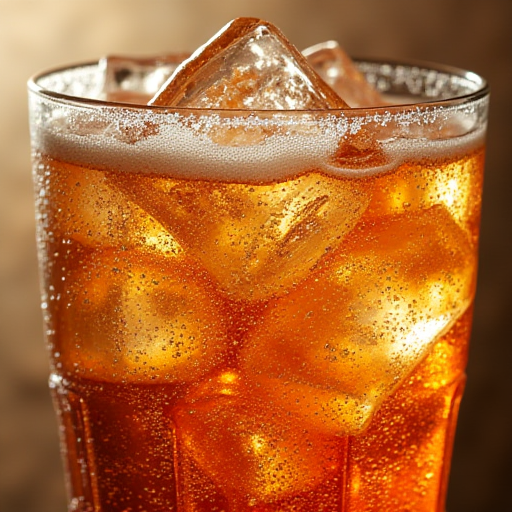
Why Do Carbonated Drinks Taste Better Cold?
Carbonated drinks, often referred to as fizzy or soda drinks, have become a staple in many people's diets around the world. These beverages are known for their distinctive fizziness, a result of carbon dioxide gas dissolved in the liquid under pressure. While many enjoy the refreshing sensation they provide, it's a common observation that carbonated drinks taste significantly better when served cold. This article delves into the scientific and sensory reasons behind this phenomenon.
The Science of Carbonation
Before exploring why temperature affects the taste of carbonated drinks, it's important to understand what carbonation is. Carbonation is the process of dissolving carbon dioxide gas (CO2) into a liquid. Under high pressure, the CO2 dissolves and forms carbonic acid, which gives carbonated drinks their characteristic tangy taste. When the pressure is released, such as when you open a bottle or can, the CO2 begins to escape in the form of bubbles.
Temperature and Gas Solubility
One of the primary reasons carbonated drinks taste better cold is related to the solubility of gases. Solubility is how well a gas can dissolve in a liquid, and it is heavily influenced by temperature:
- Higher Solubility in Cold Liquids: Carbon dioxide is more soluble in colder liquids. This means that when a carbonated drink is kept cold, it can hold more CO2. As a result, the drink retains its fizz and carbonation for a longer period of time when served cold.
- Less Solubility in Warm Liquids: Conversely, as a liquid warms up, the solubility of gases decreases. This means that CO2 escapes more readily from a warm drink, causing it to go flat. A flat soda loses its characteristic fizz and tangy taste, making it less appealing.
Sensory Experience
Temperature also affects the sensory experience of drinking carbonated beverages:
- Enhanced Flavor Perception: Cold temperatures can enhance the perception of carbonation's tangy and acidic flavors. When a drink is cold, the carbonic acid is more stable, delivering a sharper taste.
- Refreshing Sensation: Cold beverages can provide a refreshing, thirst-quenching feeling, especially on a hot day. This sensation is psychologically associated with freshness and satisfaction, enhancing the overall taste experience.
- Numbing Effect: Cold temperatures can slightly numb the taste buds, which can soften the perception of overly sweet or intense flavors, often resulting in a more balanced flavor profile.
Psychological Factors
The preference for cold carbonated drinks may also be influenced by psychological factors. Culturally, many people are conditioned to associate cold drinks with refreshment and leisure. Serving drinks cold is a common practice across various cultures, reinforcing the perception that they taste better that way.
Conclusion
The preference for cold carbonated drinks can be attributed to a combination of scientific, sensory, and psychological factors. The increased solubility of carbon dioxide at lower temperatures ensures that the drink maintains its fizz and tang, while the cold temperature enhances the sensory experience by refreshing and balancing the flavors. In essence, serving carbonated drinks cold not only preserves their intended taste but also elevates the overall enjoyment of the beverage. Whether it's a hot summer day or a casual gathering, a chilled carbonated drink is often the preferred choice for a refreshing experience.
